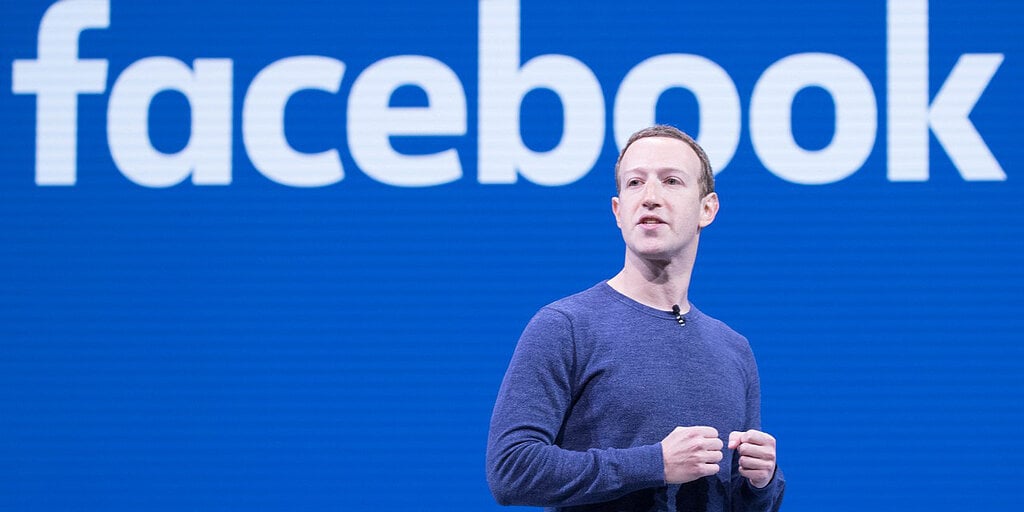Facebook parent company Meta launched its latest AI model, Llama 3.1, its most powerful generative AI product to date, the company said on Tuesday. This follows the April release of Llama 3, which the company had called “the next generation of our state-of-the-art open-source large language model.”
Also known as Llama 3.1 405B, Meta claimed the new AI model is now the world’s largest and most capable foundation model available to the public, calling it competitive with other state-of-the-art models, such as those built by OpenAI and Google.
“Llama 3.1 405B is the first openly available model that rivals the top AI models when it comes to state-of-the-art capabilities in general knowledge, steerability, math, tool use, and multilingual translation,” Meta said in a blog post. “With the release of the 405B model, we’re poised to supercharge innovation—with unprecedented opportunities for growth and exploration.”
The launch of Llama 3 and the company’s broader shift into generative AI has seen the product pushed into the majority of Meta’s line of products, including Instagram, Messenger, and WhatsApp.
In addition to bringing generative AI to the masses, however, Meta CEO Mark Zuckerberg said it’s also important that AI be made available to everyone as an open-source tool.
“Open source will ensure that more people around the world have access to the benefits and opportunities of AI,” Zuckerberg wrote in a post. “That power isn’t concentrated in the hands of a small number of companies, and that the technology can be deployed more evenly and safely across society.”
Meta’s push to develop open-source AI models has also led other AI developers, including decentralized AI companies Venice AI, Brave Browser developer Brave, and Perplexity AI, to add Llama 3 to their platforms.
“Meta deserves tremendous credit for essentially spending hundreds of millions of dollars to train a cutting-edge model and just releasing it for free to the world,” Venice AI founder Erik Voorhees said during a Twitter Space in May.
In providing more abilities, Meta said the biggest challenges it faced with developing Llama 3.1 405B was the overall increase in the model’s size, supporting a larger 128,000-token context window, and offering multilingual support. According to the company, its Meta AI can now respond in French, German, Hindi, Italian, Portuguese, and Spanish.
Regarding the ongoing debate about AI safety, Zuckerberg asserted AI should be built to avoid all types of harm.
“Unintentional harm is when an AI system may cause harm even when it was not the intent of those running it to do so,” Zuckerberg said. “Intentional harm is when a bad actor uses an AI model with the goal of causing harm.”
In the case of deliberate misuse, major AI developers—including Meta, Anthropic, OpenAI, Google, and Microsoft—put restrictions on election-related prompts to curb the spread of misinformation using their models.
Zuckerberg noted that unintentional harm covers most of the concerns that people have about artificial intelligence, and said the transparency of open-source software can also help alleviate those concerns. Included in the launch of Llama 3 is Llama Guard 3, a tool designed to monitor and enforce the ethical use of the model.
“Historically, open-source software has been more secure for this reason,” Zuckerberg said. “Similarly, using Llama with its safety systems like Llama Guard will likely be safer and more secure than closed models.”
Zuckerberg went on to say that he believes the release of Llama 3.1 will be an infliction point in the AI industry.
“The bottom line is that open source AI represents the world’s best shot at harnessing this technology to create the greatest economic opportunity and security for everyone,” Zuckerberg said.
Meta did not immediately respond to a request for comment from Decrypt.
Edited by Ryan Ozawa.
Generally Intelligent Newsletter
A weekly AI journey narrated by Gen, a generative AI model.
Source: https://decrypt.co/241302/meta-launches-llama-3-1-as-mark-zuckerberg-pushes-open-source-ai


